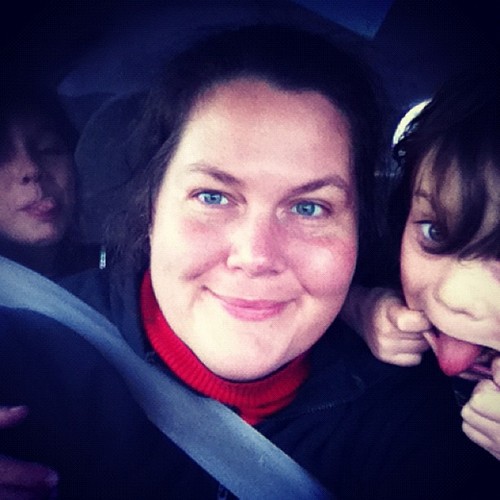I seem to be going diet book crazy this month, but besides reading the Anti-Estrogenic Diet book (see other post), I am also diving into
Nourishing Traditions, by Sally Fallon, a hefty tome that's part cookbook, part expose about the evils of the food industry and the need for people to return to the simpler, traditional foods of our predecessors. Here's the publisher's description...
A full-spectrum nutritional cookbook with a startling message--animal fats and cholesterol are vital factors in the human diet, necessary for reproduction and normal growth, proper function of the brain and nervous system, protection from disease and optimum energy levels. Includes information on how to prepare grains, health benefits of bone broths and enzyme-rich lacto-fermented foods. From the Back Cover The Diet Dictocrats don't want you to know that... Your body needs old-fashioned animal fats New-fangled polyunsaturated oils can be bad for you Modern whole grain products can cause health problems Traditional sauces promote digestion and assimilation Modern food processing denatures our foods but Ancient preservation methods actually increase nutrients in fruits, nuts vegetables, meats and milk products!
At last a successful challenge to Politically Correct Nutrition and the Diet Dictocrats!
Recalling the culinary customs of our ancestors, and looking ahead to a future of robust good health for young and old, Nourishing Traditions offers modern families a fascinating guide to wise food choices and proper preparation techniques. Sally Fallon unites the wisdom of the ancients with the latest independent and accurate scientific research in over 700 delicious recipes that will please both exacting gourmets and busy parents. The central tenant of Nourishing Traditions, in very simple terms is `Eat the way your great grandparents ate'. Some of the more important details are:
1. Avoid processed fats, starches, sugars, and proteins. They are not of no value. They are unhealthy.
2. Eat animal protein and their accompanying fats.
3. Eat whole grain products.
4. Eat foods prepared in such a way that avoids loosing important nutrients, especially raw and lacto-fermented foods.
There are lots of great recipes. I can personally vouch for the yogurt muffins and lacto fermented salsa -- they were both really good and pretty easy to make. The book has left me intrigued to learn more about Sally Fallon. Here's a video I dug up where she talks more about her nutritional research and advice:



